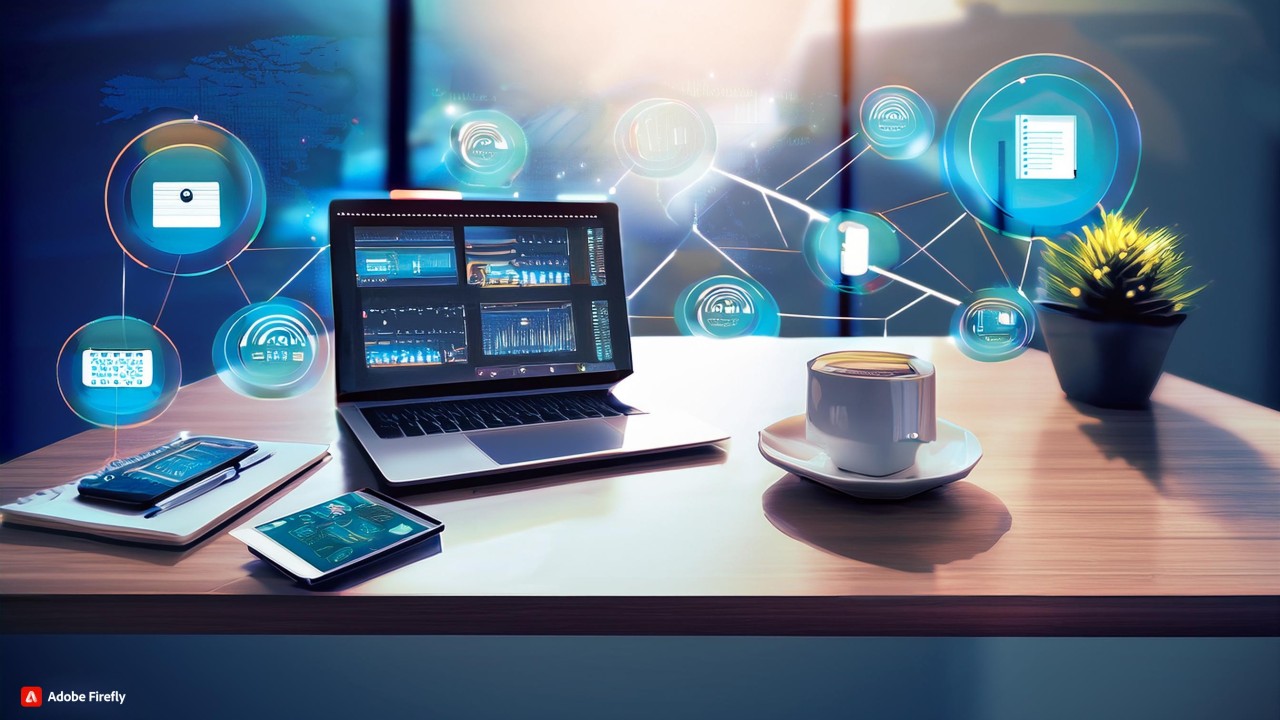
For decades, we’ve been told that hard work is the key to success. Long hours, endless to-do lists, and constant hustle were celebrated as signs of dedication. But in 2025, the game has changed. A global shift toward smart work fueled by AI, automation, and productivity technology—is redefining what it means to be efficient.
Working smarter, not harder, has become the new mantra for professionals, entrepreneurs, and creators who want to achieve more in less time without burning out. Let’s explore how this productivity revolution is reshaping the way we work, live, and succeed.
Hard work is about putting in effort; smart work is about putting effort where it truly matters. The difference lies in focus, tools, and strategy.
In the past, success was linked to how long you worked. Today, it’s linked to how effectively you use your time, resources, and technology. AI-powered tools, automation software, and data-driven decision-making now allow people to achieve results that used to take weeks—in just hours.
In 2025, productivity isn’t about doing more it’s about doing what matters most.
The reason smart work dominates today’s professional landscape is simple: efficiency drives success. Here’s why more people are adopting this mindset:
Automation Everywhere: From email marketing to content creation, automation tools eliminate repetitive tasks, freeing up time for strategic thinking.
AI Assistance: Tools like ChatGPT, Notion AI, and Jasper help professionals brainstorm ideas, write reports, and analyze data in minutes.
Data-Driven Decisions: Smart workers use analytics to identify what works and what doesn’t—saving time and increasing output quality.
Work-Life Balance: Smart work promotes sustainable productivity. It allows people to achieve more without sacrificing their health and happiness.
Smart workers focus on outcomes, not just effort. They understand that time is their most valuable resource—and use technology to make every minute count.
Technology is the backbone of the 2025 productivity revolution. Artificial Intelligence, machine learning, and workflow automation have reshaped industries across the globe. Here’s how:
AI as a Creative Partner
AI is no longer just a tool it’s a collaborator. Creators use AI for idea generation, content design, and even coding. It helps reduce creative blocks and accelerates innovation.
Automation and Task Management
Smart work relies on tools like Asana, Trello, and ClickUp to automate reminders, delegate tasks, and streamline workflows. This ensures that no time is wasted on unnecessary manual processes.
Remote Collaboration Tools
With hybrid work models becoming standard, platforms like Slack, Microsoft Teams, and Zoom make communication efficient and seamless. They bridge the gap between global teams and improve coordination.
Smart Analytics and Insights
Data tools such as Google Analytics, HubSpot, and Notion help professionals make informed decisions faster. Tracking progress and optimizing performance is now easier than ever.
The result? Productivity has skyrocketed, burnout has decreased, and creativity has taken center stage.
Adopting smart work requires more than just tools it’s about mindset and habits. Here are key strategies that define the most successful professionals today:
1. Prioritize with Purpose
Focus on high-impact tasks. Apply the 80/20 rule (Pareto Principle) 80% of your results come from 20% of your efforts.
2. Leverage AI Tools
Use AI assistants to handle repetitive tasks such as writing, scheduling, data sorting, or research. This saves hours each day.
3. Batch Similar Tasks
Grouping similar tasks together reduces mental fatigue and improves focus. For example, check emails only twice a day instead of every hour.
4. Learn Continuous Optimization
Smart workers analyze what worked and what didn’t. They adjust their systems regularly to improve efficiency.
5. Maintain Balance
Productivity isn’t just about work it’s also about recovery. Taking breaks, exercising, and sleeping well improve performance long-term.
By developing these habits, professionals in 2025 are achieving greater results in less time, with far less stress.
In 2025, humans and AI are working hand in hand. While machines handle repetitive or data-heavy tasks, humans focus on strategy, creativity, and empathy the things AI can’t replace.
For instance:
Marketers use AI to automate campaigns while they focus on storytelling.
Developers use AI code assistants like GitHub Copilot to save time on debugging.
Designers use AI tools to generate creative layouts, then refine them with a personal touch.
This collaboration has not only improved productivity but also unleashed human creativity like never before.
Here are the biggest advantages professionals experience by embracing smart work:
Higher Efficiency: Complete projects faster with fewer resources.
Reduced Stress: Automate tedious work and focus on meaningful goals.
Enhanced Creativity: Spend more time innovating, less time managing.
Better Financial Outcomes: Increased productivity often leads to higher profits and better career opportunities.
Global Flexibility: Smart workers can work remotely and collaborate across time zones without missing a beat.
In short, smart work creates more opportunities, more freedom, and more impact.
Looking ahead, the productivity revolution is only beginning. The next decade will see deeper integration of AI agents, voice automation, and predictive scheduling tools that anticipate what you need before you even ask.
Companies are also shifting toward results-based performance, valuing outcomes over hours worked. This mindset encourages innovation and rewards creativity instead of busyness.
Education systems are adapting too teaching time management, automation skills, and AI literacy to prepare the next generation for smart work environments.
By 2030, smart work will be the global standard, and hard work will simply mean working without efficiency.
The 2025 productivity revolution is proof that working smarter truly beats working harder. AI, automation, and modern tools have leveled the playing field giving everyone the ability to achieve more with less effort.
But the real power of smart work lies in balance combining human intelligence with technology, creativity with strategy, and effort with insight.
In this new era, success doesn’t belong to those who work the longest; it belongs to those who work the wisest.
So, embrace smart work, leverage AI, and take control of your time because the future of productivity is already here

Share This News